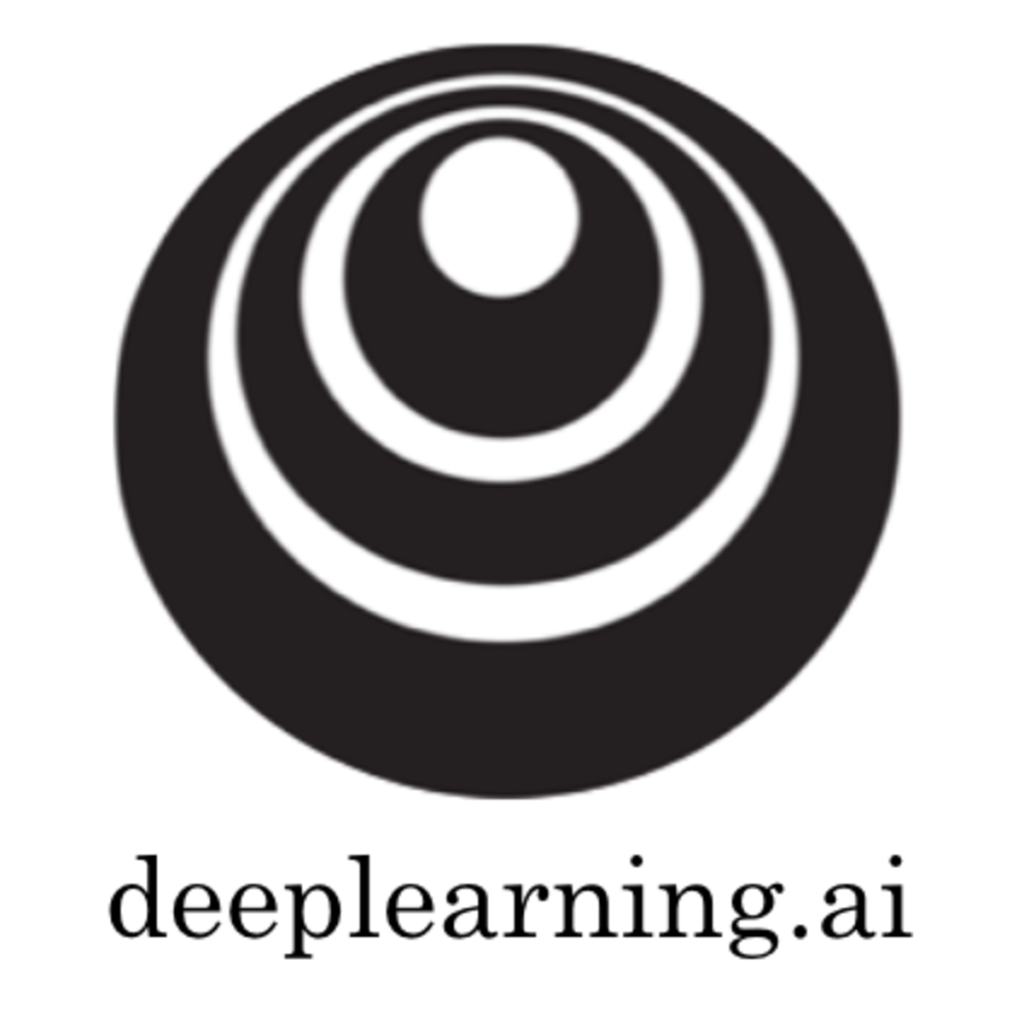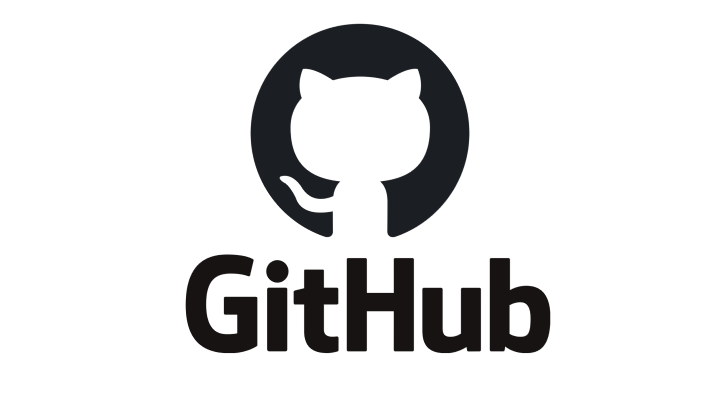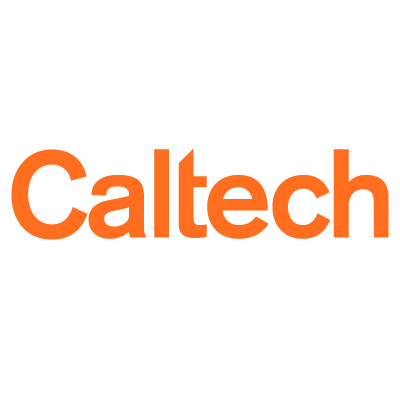

Natural Language Processing, or NLP, is an offshoot of artificial intelligence (AI) focusing on the interaction between computers and humans. The goal of NLP is for computers to decipher, understand, and process human language in a way that has meaningful applications in real life.
NLP has been around for a while. In fact, you probably already use it nearly every day. (We’re looking at you, Siri.) However, interest in the technology is increasing at a rapid clip, thanks to more powerful computers and the advent of Big Data. The implication of all this growth is that more and more skilled professionals are needed in this highly specialized field.
Featured Programs
- Harvard University CS50 Intro to Artificial Intelligence with Python
- Natural Language Processing Specialization
- National Research University Natural Language Processing HSE
Disclaimer: Some courses may include an affiliate link. Courses were chosen first based on the methodology with affiliate links only added after the ranking was complete.
That’s where free online courses for natural language processing come in. They are ideal both for those who want to develop a better understanding of NLP as well as students who want to make a career out of this exciting branch of artificial intelligence.
In this article, we’ll start by sharing with you some of the top online courses you can take to learn NLP at no cost. We’ve listed them in descending order—using a methodology we developed for this purpose—with our favorite options at the top. After the review, we will cover natural language processing in more detail and answer some questions about what to expect from free remote coursework.
Ranking 10 Free Online Courses for Natural Language Processing
1. Create a Chatbot Using AIML

Udemy has one of the best learning platforms around. Students can choose from thousands of topics and take courses ranging in length from an hour to several weeks long, most with very affordable pricing. A handful of courses, like this AIML offering, are completely free. We’ve included this brief class because it’s just what some students need to put more fun into their NLP studies.
The course can be completed in an afternoon, and not only is it a great way to learn more about NLP, AI, and machine learning, it’s taught by Steve Worswick, creator of the now-famous Mitsuku chatbot. Participants will build a chatbot from beginning to end while learning from the world’s best chatbot creator and 5-time winner of the Loebner Prize. What we really love about it is that he’s been generous enough to share his expertise at no charge to anyone.
There are no prerequisites for taking the free online course for NLP, so students at any level can participate. Once you sign up, you will have lifetime access to the course, and you can take it on any platform, including TV or mobile.
Cost: Free
Certificate: No
Time to Complete: Approximately four hours
Curriculum: Introductory
User Experience: Excellent
Quality of Instruction: Excellent
Pros:
•A chance to learn from an award-winning developer
•Designed for learners at all levels
•A whole lot of fun
Cons:
•None
2. A Code-First Introduction to Natural Language Processing

Offered by fast.ai
We’ll admit right up front that this course presented on fast.ai is not only complex, it’s downright mind-boggling. This is AI geeking at its finest, brought to you two now-famous faculty members of the University of San Francisco who have developed a top-down approach to learning AI.
The idea here is to present students with the big picture by sharing practical code first, and the lower-level details of NLP second. It’s a concept that makes sense and appears to have worked for many, including several executives and data scientists at Github.
Let’s be clear, though. Unless you already have some prior technical knowledge of NLP and coding, you are likely to find yourself lost at sea. We recommend an introductory NLP class or two before embarking on this robust course. Those with more experience may want to take Fastai’s introductory course, Practical Deep Learning for Coders, as well.
Fastai has been committed since its inception to providing learning resources at no charge through its vast online library and MOOCs. The free online course is a must for students who are serious about NLP.
Cost: Free
Certificate: No
Time to Complete: Varies
Curriculum: Intermediate to advanced
User Experience: Excellent
Quality of Instruction: Excellent
Pros:
•Practical and relevant
•Developed by those in the field
•Offers a top-down approach to learning
Cons:
•Too advanced for some users
3. Natural Language Processing Specialization

Offered by deeplearning.ai via Coursera
This specialization by deeplearning.ai is an advanced offering that is not for the faint of heart. It actually consists of four separate courses and is intended for students who already have a working knowledge of machine learning and python, as well as being proficient in calculus, statistics, and linear algebra. While participants can pursue a verified certificate by paying for the specialization, each course can be followed in audit mode at no charge, just be sure to sign up for them separately. The free online natural language processing courses include:
Course 1: Classification and Vector Spaces in NLP
Course 2: Probabilistic Models in NLP
Course 3: Sequence Models in NLP
Course 4: Attention Models in NLP
These are intensive learning courses. To give you an idea of the breadth of knowledge that is covered, Course 1 alone takes a month and covers:
• Logistic Regression for Sentiment Analysis of Tweets
• Naïve Bayes for Sentiment Analysis of Tweets
• Vector Space Models
• Word Embeddings and Locality Sensitive Hashing for Machine Translation
While the specialization is not for everyone, it’s an ideal option for those who want a deep learning dive into NLP. Created and taught by two experts in NLP, machine learning, and deep learning, it’s the most robust offering on our list.
Cost: Free
Certificate: Yes, with a fee
Time to Complete: Four months
Curriculum: Intermediate to advanced
User Experience: Excellent
Quality of Instruction: Excellent
Pros:
•Students will acquire a tremendous amount of skills
•Taught by the experts behind deeplearning ai
•Financial aid may be available for those who need but can’t afford certification
Cons:
•Certification requires a fee
4. Natural Language Processing/YSDA

Offered by YSDA and Lean Voita on Github
Elena (Lena) Voita is a former research scientist at Yandex who now teaches at the Yandex School of Data Analysis. She presents this course as another intermediate to advanced offering that allows students to dive deep into NLP at no charge. Like Fastai, its more suited to students with a fair amount of prior technical knowledge, but is definitely worth a look if you want a more comprehensive learning experience.
The free online natural language processing course covers word embeddings, text classification, language modeling, and Seq2seq and attention and is designed to be completed over four weeks. Students can start wherever they like, however, and completion time is flexible. Voita also offers other resources on the page like NLP games, related research papers, and activities to help you learn to think like a research scientist.
Cost: Free
Certificate: No
Time to Complete: Varies
Curriculum: Intermediate to Advanced
User Experience: Good
Quality of Instruction: Good
Pros:
•No sign-ups necessary
•Developed by an expert in teaching NLP
•Unique
Cons:
•Advanced topics probably not suitable for those with little experience
5. Natural Language Processing/HSE

Offered by the Higher School of Economics via Coursera
This free online course on NLP offered through Coursera is presented by five faculty members of the Higher School of Economics. It’s part of the Advanced Machine Learning Specialization, but can be taken for free in audit mode. This is an advanced offering that takes about 32 hours to complete and is one of the most comprehensive courses on natural language processing on our list.
Through a series of on-demand videos, readings, and quizzes, students will learn about a wide range of tasks in NLP, from basic lessons to advanced concepts. There are five modules. The first is an introduction focusing on the goals of the course, where you will also get the opportunity to complete a text classification task. The remaining classes focus on:
• Language modeling and sequence tagging
• Vector Space Models of Semantics
• Sequence to sequence tasks
• Dialog systems
You will want a significant amount of prior knowledge when taking the course, although if you are really ambitious, you can conduct research as you go along. Well-reviewed by former students, nearly half of those who took the free online NLP course got a tangible career benefit from completing it, such as a new job, promotion, or pay increase.
Cost: Free
Certificate: Yes, with a fee
Time to Complete: 32 hours
Curriculum: Introductory to Advanced
User Experience: Excellent
Quality of Instruction: Excellent
Pros:
•Financial aid may be available for those who need certification
•Comprehensive but practical
•Well-reviewed among former students
Cons:
•Covers advanced topics that may require further study
6. CS50’s Introduction to Artificial Intelligence with Python

Offered by Harvard University via edX
CS50’s Introduction to Artificial Intelligence with Python is a great course to take if you are just beginning to explore artificial intelligence and NLP. It touches on the technologies behind machine translation as well as other topics such as game playing engines, handwriting recognition, and more.
Students will learn about classification, graph search algorithms, reinforcement learning, optimization, and other AI topics and apply them to their own Python programs. The goal is for participants to obtain the knowledge they need to start designing intelligent systems.
CS50 is Harvard’s most popular course, and possibly the most well-known course in computer science throughout the world. The free online NLP course provides a solid understanding of natural language processing, machine learning, neural networks, and many more relevant topics.
You will want to commit to between 10 to 30 hours a week for seven weeks to get the full benefits of this excellent free online course. Certification requires an additional fee, but the course can be taken in its entirety at no cost.
Cost: Free
Certificate: Yes, with a fee
Time to Complete: 7 Weeks
Curriculum: Introductory
User Experience: Excellent
Quality of Instruction: Excellent
Pros:
•Financial aid may be available for those who need certification
•One of the most highly-rated CS courses in the world
•Part of a professional certificate in Computer Science for Artificial Intelligence
Cons:
•Certification is only offered at the paid level of the course
7. Learning from Data (Introductory Machine Learning Course)

Offered by California Institute of Technology
Machine learning is the precursor to natural language processing, and those who intend to pursue this educational path will need a firm foundation in ML. This MOOC from Caltech is one of our favorite picks when it comes to free NLP classes. It is taught by Caltech Professor Yaser Abu-Mostafa, and it consists of 10 weeks of assignments that include 18 lectures and a final graded exam.
The free online NLP course covers both theory of machine learning as well as practical exercises. Students can jump in at any point, taking the course from beginning to end, or skipping around to the most relevant lessons for them. An online forum allows you to interact with other participants. While the course itself is offered at no charge, you will probably want to pick up the textbook on Amazon to get the most out of the lessons.
Cost: Free
Certificate: No
Time to Complete: 10 Weeks
Curriculum: Introductory to Advanced
User Experience: Excellent
Quality of Instruction: Excellent
Pros:
•Set your own schedule and go at your own pace
•Ideal for those looking for a solid foundation in machine learning
•Totally free course from a major college
Cons:
•You will need to purchase the course textbook
8. Machine Learning for All

Offered by University of London International Programmes via Coursera
This is a basic course designed to introduce students to the principles behind machine learning, how it solves problems, and the various technologies it encompasses. Unlike some of the other courses on our list, this one does not require any prior training in programming languages like TensorFlow or Python and can be taken even without a background in CS or mathematics.
Essentially, the course explores a complex area of computer science in a way that can be understood by the average participant. The creators feel that given the importance of AI, everyone should have a basic understanding of machine learning concepts. It’s an excellent way to learn more about the technology, whether you plan on pursuing it as a career choice, or you just want to comprehend it better.
Cost: Free
Certificate: Yes, with a fee
Time to Complete: Four weeks
Curriculum: Introductory
User Experience: Excellent
Quality of Instruction: Excellent
Pros:
•Covers all the basics of machine learning for students who only need an overview
•Taken by over 2000 students
•Taught by Dr. Marco Gilles, a top instructor on the platform.
Cons:
•Fee charged for a certificate
9. Natural Language Processing (NLP) with BERT

Offered by Udemy
BERT stands for Bidirectional Encoder Representations from Transformers. Its a pre-trained NLP model developed by Google, and if you want to get into the field of natural language processing, you’ll need to meet BERT.
In this one hour course on Udemy, you will have that opportunity. While it’s a brief offering, students will get a good overview of the technology and even learn how to perform semantic analysis movie reviews using Ktrain. You’ll work through data preprocessing, building and training the BERT model, and finally, finishing up the class by evaluating BERT.
One cool thing about this short free online natural language processing course is that you will be using Google’s Colab browser-based notebook environment. The interface runs entirely on the cloud and is an excellent tool to add to your list of data science resources.
Cost: Free
Certificate: No
Time to Complete: One hour
Curriculum: Introductory to Intermediate
User Experience: Excellent
Quality of Instruction: Excellent
Pros:
•Students of all levels can jump in wherever they want
•Created by the Superdatescience team
•Easy-to-follow
Cons:
•Too short
10. MIT Deep Learning State of the Art

Offered by Massachusetts Institute of Technology
If you’ve ever dreamed of sitting in on classes at a major US tech school, MIT offers some excellent lectures on machine learning, and this 1.5-hour offering by Lex Fridman serves as the introduction to an entire playlist of them on YouTube. Fridman discusses where we are as a society with deep learning and he highlights brilliantly some of the most significant milestones when it comes to innovations in AI and machine learning.
MIT’s open-source classes and lectures are the same ones you will find on campus, but you don’t need to be an MIT student to participate. Each of the lectures provides a wealth of information free of charge. Just pop in some headphones and you’re on your way.
Cost: Free
Certificate: No
Time to Complete: 1.5 hours
Curriculum: Introductory
User Experience: Good
Quality of Instruction: Excellent
Pros:
•Taught by engaging instructor Lex Fridman
•Easy to fit into a busy schedule
•Many options to choose from
Cons:
•No certificates or hands-on work offered
Frequently Asked Questions About Free Natural Language Processing Courses

As a result of new techniques in artificial intelligence, natural language processing is rapidly gaining traction as one of the most fascinating fields to work in. While not an easy discipline to embark on, the industry holds great promise for those who are interested in pursuing a career in NLP. The technology is continuously around us, even when we don’t realize it. Search engines, voice-to-text, chatbots, digital assistants, spell-checkers, and more are examples of just a few ways NLP regularly intersects with our everyday lives.
If you’re considering breaking into this exciting subfield of AI, you probably have a few questions. In this section, we will cover some of the most common queries about working in natural language processing. We will also cover some frequently asked questions about free online courses in NLP.
What Are Some Job Titles of People Who Work in NLP?
NLP falls under the category of applied engineering, but there is no one official title that exists in the field. We’ve seen several, including NLP Scientist (the most popular, by far), Applied Scientist, Applied Engineer, Data Specialist, Data Scientist, and Data Linguist. To keep things simple, we will refer to professionals working in the field of NLP as NLP scientists.
Is NLP a Lucrative Career Choice?
NLP Scientists command an average salary of $128,915 annually, according to Zip Recruiter. Those with more experience can expect an even higher annual income.
How Can I Become an NLP Scientist?
If you’ve been seriously considering NLP science as a career choice, you’ve probably noticed that no schools offer degree programs in NLP. Instead, you may see it listed as a learning track. An example of this is Columbia University’s Computer Science Master’s Degree Program with an NLP track.
Most students who carve out a career in this niche start by getting degrees in linguistics, computer science, language technologies, or other related majors. They will then develop their skills further by focusing on machine learning and artificial intelligence. However, it’s important to note that many in the field are self-taught, too.
Instructor Jason Brownlee argues that one does not need a college education to get into AI and machine learning, but he also maintains that there are multiple steps you will need to take if you are serious about becoming an expert in the field. These include completing small projects, getting a job in the field, publishing your own findings, taking part in competitions, and several other suggestions. Not surprisingly, Brownlee also advises you to take online courses in machine learning.
Will Taking Free Online Courses for Natural Language Processing Prepare Me for a Job in the Field?
While they can be a helpful addition to your toolbox of skills, free online NLP courses alone are probably not enough to prepare you for a career in the field. For that, you will need a strong foundation in some college-level subjects like algebra, statistics, linguistics, and math.
There is a broad list of technical skills needed to become an NLP scientist as well:
• Python
• Data Visualization
• SQL
• Data Storytelling
• AI and Machine Learning
• Deep Learning
• Cloud
• GitHub
Additionally, every NLP professional should possess some soft skills like good communication, research, analytics, problem-solving, agility, collaboration, and experimentation.
What Are the Requirements and Prerequisites for Taking Free NLP Courses?
Since the courses on our list vary in level of difficulty, you will want to check the landing pages for the ones that interest you to see if there are any special requirements for enrollment. In most cases, anyone can sign up, and there are no academic prerequisites. However, some of the courses do suggest a certain level of programming experience, and academically, some calculus, simple linear algebra, and math can be helpful, especially for the more advanced offerings.
Who Should Take Free NLP Courses?
Competency in natural language programming has become more important as time goes on, so if you are even remotely interested in the field, it can’t hurt to take a class or two to increase your knowledge. At the very least, you will be able to talk to experts in the field or read an article about AI or NLP and know what is going on.
If you already work in data science, staying in the know is vital, so taking NLP courses is a must to keep your skills up-to-date.
Closing Thoughts
We are at an amazing point in history where natural language processing is starting to change the way we interact with the machines we use. One of the most exciting things about NLP is it has so many practical applications and is relevant to so many real-world products. No matter what career you choose, whether it be psychology, medicine, law, or something else, NLP will eventually intersect with your job—probably sooner rather than later.
Related: